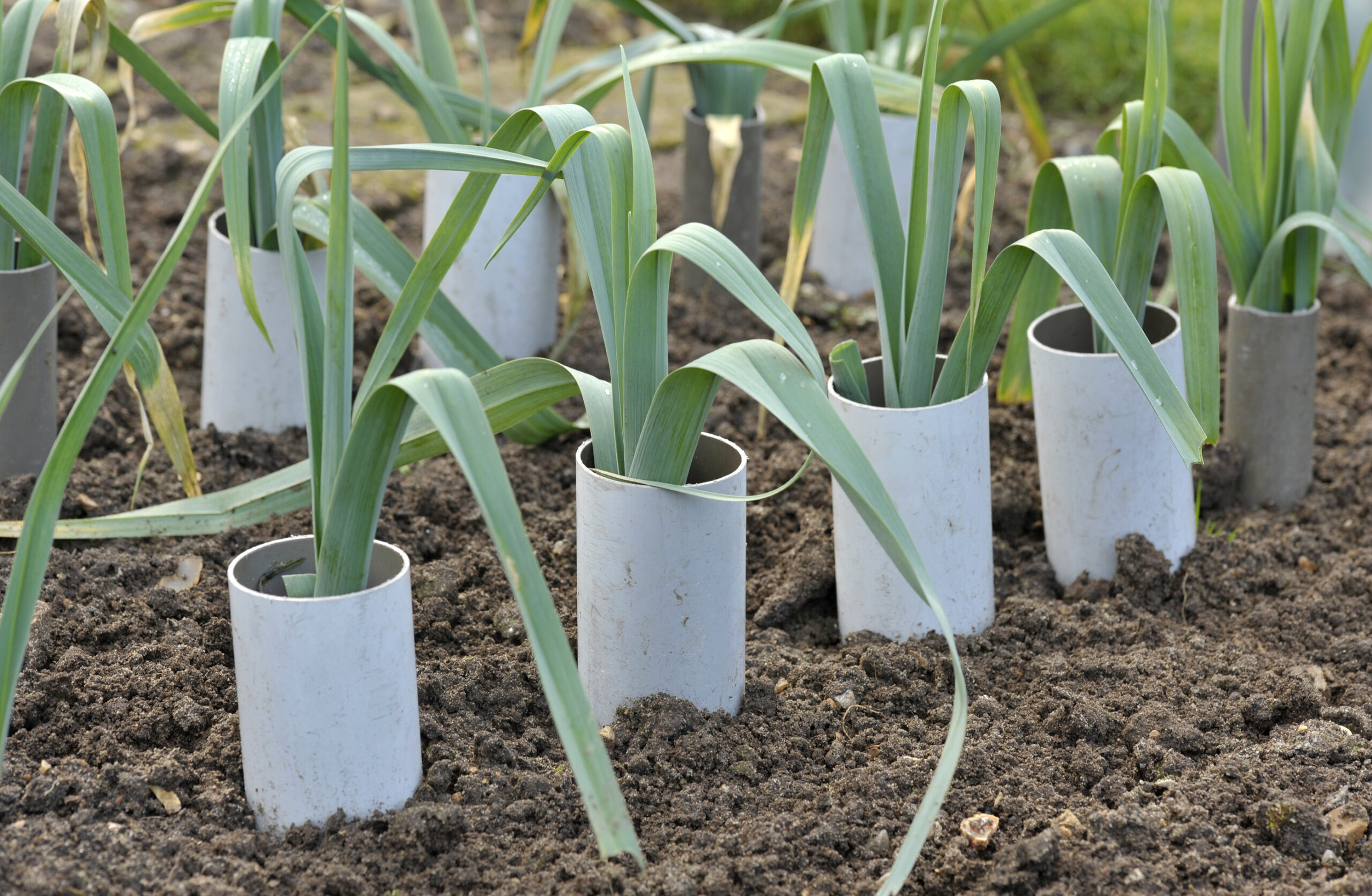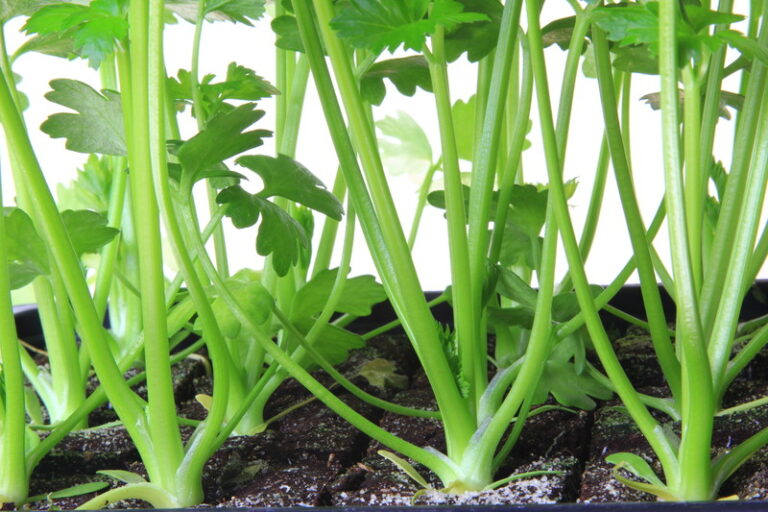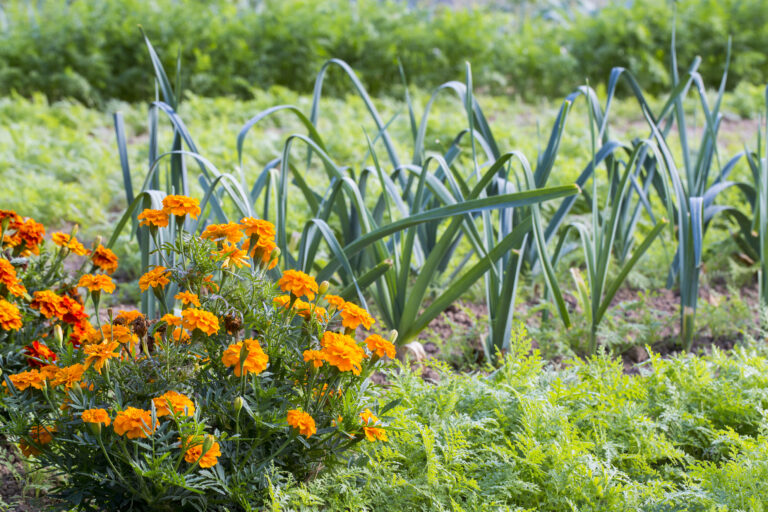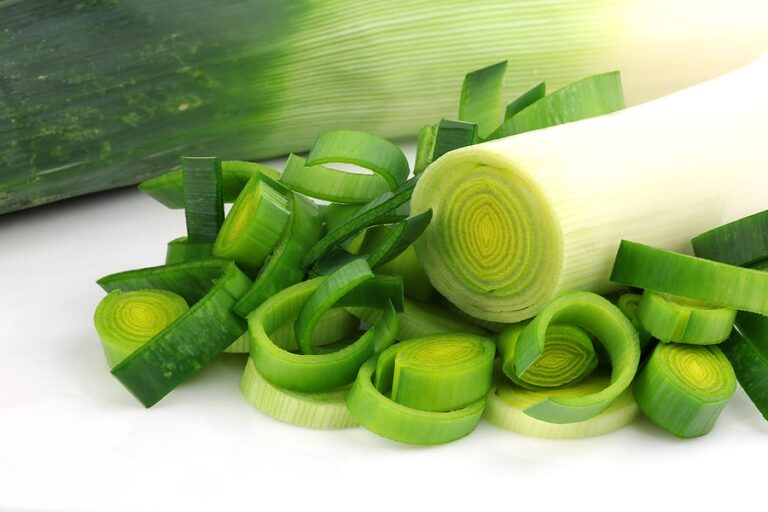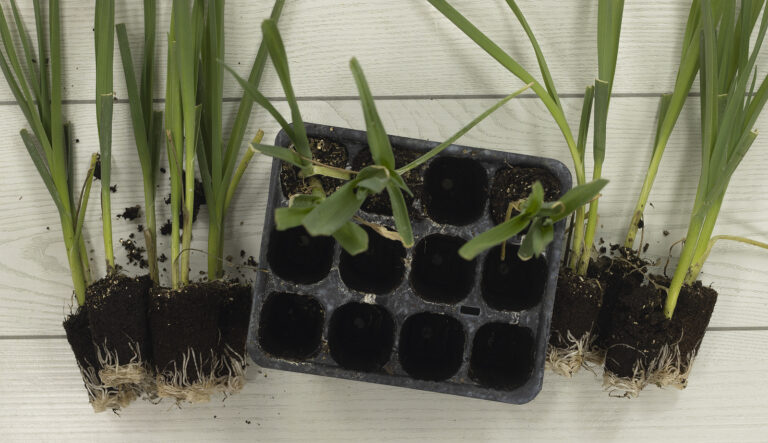Growing Leeks in Tubes: A Step-by-Step Method
Leeks grow best when their stalks are long, white, and tender. One of the most effective ways to achieve this is by growing them in tubes. I’ve used this method in my own garden to produce straight, beautifully blanched leeks with less effort. Here’s a step-by-step guide to help you master the tube method.
Why Grow Leeks in Tubes?
Leeks naturally develop green stalks when exposed to sunlight. To produce the long white portion prized in the kitchen, gardeners often “hill up” soil around the plants. Tubes mimic this effect by shielding the stalks from sunlight, reducing labor while encouraging healthier, straighter growth.
Step 1: Choose the Right Tubes
- Use wide, sturdy tubes such as PVC pipe sections, cardboard tubes, or even cut plastic bottles.
- Tubes should be about 8–12 inches tall and wide enough for leek stems to expand without restriction.
My experience: cardboard tubes are easiest to use, but in damp climates, PVC lasts longer through the season.
Step 2: Prepare the Soil
Leeks thrive in fertile, well-draining soil. Work in compost or aged manure before planting. Aim for loose soil so roots can grow deep and strong.
Step 3: Planting Leeks in Tubes
- Transplant seedlings when they are about 6–8 inches tall.
- Insert each seedling into a pre-set tube, keeping the roots in contact with the soil.
- Space tubes 6–8 inches apart in rows.
Step 4: Water and Feed Regularly
- Water consistently to keep the soil moist but not soggy.
- Feed every 3–4 weeks with a balanced liquid fertilizer or compost tea to support steady growth.
Step 5: Caring for Leeks in Tubes
- Keep the area weed-free to reduce competition.
- As leeks grow, the tube will encourage natural blanching without constant mounding of soil.
- Check periodically to ensure tubes remain upright and stable.
Step 6: Harvesting Tube-Grown Leeks
Leeks are ready when stalks reach about 1–2 inches thick. To harvest, gently pull the tube up and slide the leek out. You’ll notice a longer white shank compared to soil-grown leeks.
Final Thoughts
Growing leeks in tubes is a gardener-friendly method that saves time while delivering straighter, milder stalks. After several seasons of using this technique, I’ve found it especially helpful in my raised beds where hilling is more difficult. If you want beautiful, restaurant-quality leeks, tubes are worth trying.
Growing Leeks: Tubes vs. Hilling
| Method | Pros | Cons | Best For |
|---|---|---|---|
| Tubes | – Produces longer white stalks with less effort – Cleaner harvest – Saves space in raised beds | – Requires tubes or materials – Must check for stability in wind | Small gardens, raised beds, straight stalks |
| Hilling Soil | – Traditional method, no extra materials needed – Can blanch multiple plants at once | – Labor-intensive (repeated mounding) – Can be messy during harvest | Large garden beds, traditional row planting |
👉 Gardener’s Note: I’ve used both methods, but tubes save me time in my raised beds while still giving beautiful long shanks.
Leeks Growing Hub
Start here: The Ultimate Leeks Growing Guide: From Seed to Harvest
Leek Basics & Varieties
- Short-Season vs. Long-Season Leeks: Key Differences and How to Grow Each
- Best Leek Varieties to Grow in Your Garden
- Leeks vs. Green Onions vs. Garlic Scapes: What’s the Difference?
Planting & Site Prep
- Leeks Seed Starting Tips
- When to Plant Leeks by USDA Zone
- Planting and Spacing Leeks for Healthy Growth
- The Best Companion Plants for Leeks and What to Avoid
Unique Growing Methods
- Hilling Leeks: How to Grow Long, White Stems
- Growing Leeks in Tubes: A Step-by-Step Method
- How to Grow Leeks in Containers or Pots
Care & Maintenance
- How to Water Leeks for Steady Growth
- Fertilizing Leeks: Feeding Tips for Bigger, Sweeter Stalks
- Leek Care Throughout the Growing Season
- How to Extend the Leek Harvest Into Winter
Pests & Diseases
Harvest & Beyond

